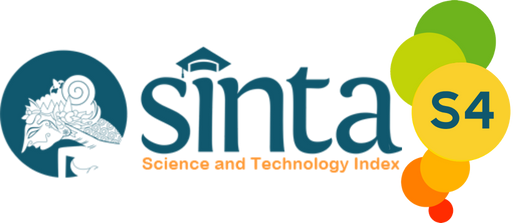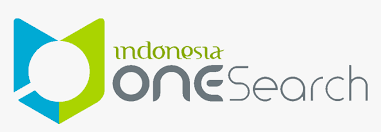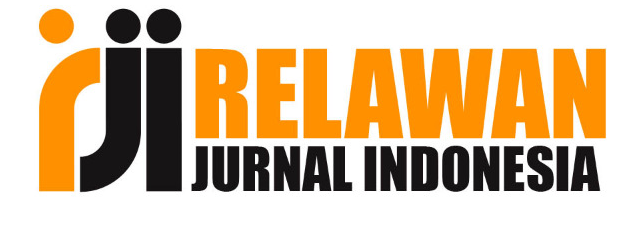Masjid Pedesaan sebagai Agen SDGs: Mengembangkan Kerangka Good Mosque Governance
Rural Mosques as SDGs Agents: Developing a Good Mosque Governance Framework
DOI:
https://doi.org/10.32939/dhb.v6i2.5864Keywords:
Good Mosque Governance, Mosque Management, SDGsAbstract
Purpose: This study aims to formulate a contextual and practical concept of Good Mosque Governance (GMG) to improve mosque management quality and support the achievement of Sustainable Development Goals (SDGs), particularly in institutional governance, economic empowerment, and community participation.
Design/Methodology/Approach: The study employs a qualitative approach using action research at An Najah Mosque, Giling Village, Semarang Regency. Data were collected through in-depth interviews, participatory observation, document analysis, and Focus Group Discussions (FGD). Data analysis was conducted thematically following five action research stages: diagnosing, action planning, action taking, evaluating, and learning.
Findings: The results indicate that the implementation of GMG has the potential to support the achievement of SDG 1 (poverty alleviation), SDG 3 (public health), SDG 4 (quality education), SDG 8 (economic empowerment), SDG 10 (reduced inequalities), and SDG 16 (institutional strengthening).
Research Implications: This concept is expected to serve as a practical reference for mosque managers and a theoretical contribution to the development of sustainable mosque governance.
Downloads
References
Adha, N., Hamid, A., Saleh, N., Mustaffha, N., Ohman, N., Saidpudin, W., & Awang, A. H. (2015). Mosques perception in Selangor. Australian Journal of Basic and Applied Sciences, 9(31), 14–23.
Afriyanti, R. (2024). Mosques-based community empowerment in developing sustainable. Atlantis Press SARL. https://doi.org/10.2991/978-2-38476-340-5
Ahmad, R., Arsad, S., Said, R., Hassan, A., & Shahabuddin, S. (2020). Development of framework for good governance index for development of framework for good. Journal of Critical Reviews, 7(19), 9343–9348. https://doi.org/10.31838/jcr.07.19.1041
Bamber-Zryd, M. (2022). Cyclical jihadist governance: The Islamic State governance cycle in Iraq and Syria. Small Wars and Insurgencies, 33(8), 1314–1344. https://doi.org/10.1080/09592318.2022.2116182
Beylefeld, A. (2010). The challenge of creating knowledge through action research. South African Journal of Higher Education, 19(7). https://doi.org/10.4314/sajhe.v19i7.50235
Desiana, S., Salsabila, R., & Sarmigi, E. (2025). Unlocking real sector growth through sukuk: Regulatory challenges and developmental impacts in Indonesia. Al-Iqtishad: Jurnal Ilmu Ekonomi Syariah, 17(1). https://doi.org/10.15408/aiq.v17i1.44906
Ekaviana, D., Ramadhani, F. N., & Mulawarman, A. D. (2019). Investigating an Indonesian equitable financing: Case study on Baitul Maal Masjid Jogokariyan. International Journal of Zakat and Islamic Philantropy, 1(2), 85–93.
Ekaviana, D., Triyuwono, I., & Djamhuri, A. (2021). Mosque transparency under frame Qur’an Surah At Taubah verse 18: Analysis at the Mosque of Jogokariyan. Atestasi: Jurnal Ilmiah Akuntansi, 4(1), 120–131. https://doi.org/10.57178/atestasi.v4i1.173
Fahmi, R. A. (2022). Transformation of mosque management through Islamic social enterprise concept. Journal of Islamic Economics Lariba, 8, 157–178. https://doi.org/10.20885/jielariba.vol8.iss1.art10
Fauzan, A. F., Zakaria, Z. A., & Siregar, S. (2024). Human resources aspects in mosque financial management in Jogokariyan Mosque and Al-Ikhlash Jatipadang Mosque. International Journal Ihya’ ’Ulum Al-Din, 26(1), 44–56. https://doi.org/10.21580/ihya.26.1.20479
Hasan, H. (2009). Action research: Desain penelitian integratif untuk mengatasi permasalahan masyarakat. AKSES: Jurnal Ekonomi dan Bisnis, 4(8), 177–188.
Susman, I. G., & Evered, D. R. (2023). An assessment of the scientific merits of action research. Studi Organizzativi, 23(2), 135–161. https://doi.org/10.3280/so2022-002006
Istan, M. (2022). Analysis of mosque financial management in the development of mosque funds in Indonesia. International Journal of Multicultural and Multireligious Understanding, 9(12), 316. https://doi.org/10.18415/ijmmu.v9i12.4246
Jamail, M. I., Samsudin, I. L., Rasdi, M. T. M., Sabil, A., & Yola, L. (2023). Sustainable mosque designs from the perspectives of social inclusion: Comparisons of four mosques in Kuala Lumpur, Malaysia. International Journal of Sustainable Construction Engineering and Technology, 14(5), 328–335. https://doi.org/10.30880/ijscet.2023.14.05.026
Kashi, A., Laallam, A., Mansour Nomran, N., Azmi Abumughli, A., & Al-Binali, T. (2024). Do institutional environment and corporate governance structures determine Islamic banks’ sustainability performance? Evidence across key jurisdictions in Islamic finance industry. Borsa Istanbul Review, 24(6), 1088–1100. https://doi.org/10.1016/j.bir.2024.06.005
Khabibah, U., Agriyanto, R., & Farida, D. N. (2021). Developing performance measurement model of mosques. Jurnal Akuntansi dan Keuangan Islam, 9(1), 5–25. https://doi.org/10.35836/jakis.v9i1.218
Lee-Post, A. (2009). e-Learning success model: An information systems perspective. Electronic Journal of E-Learning, 7(1), 61–70.
Mohamed, I. S., Mustafa, N., Yusuf, S. N. S., & Rozzani, N. (2023). Issues in financial governance practices in Malaysia’s mosques. Journal of Nusantara Studies, 8(3), 134–146. https://doi.org/10.24200/jonus.vol8iss3pp134-146
Pahlevi, R. W. (2023). Mapping of Islamic corporate governance research: A bibliometric analysis. Journal of Islamic Accounting and Business Research, 14(4), 538–553. https://doi.org/10.1108/JIABR-12-2021-0314
Pahlevi, R. W., Warsono, S., & Setiyono, B. (2025). Conceptual paper on the relationship between mosque performance, financial management, and governance in Daerah Istimewa Yogyakarta, Indonesia. Cogent Business and Management, 12(1). https://doi.org/10.1080/23311975.2024.2435599
Pamungkas, H., Darsono, D., Supriyadi, S., & Padmaningrum, D. (2025). An SDG-11 sustainable great mosque community: A which departs from the mosque organizational environment. The SDGs are designed to end poverty, 5, 1–19.
Sarmigi, E., Rahayu, S., & Arum, E. D. P. (2025). Against fraud: How religious-based values accounting work. TSAQAFAH, 21(1), 139–158.
Sarmigi, E., Rahayu, S., Arum, E. D. P., & Wijaya, R. (2025). Causes and prevention of fraud in management of village funds: Literature review. Procedia Environmental Science, Engineering and Management, 12(2), 301–312.
Schuiling, G., & Vermaak, H. (2017). Four contexts of action research: Crossing boundaries for productive interplay. International Journal of Action Research, 13(1), 5–23. https://doi.org/10.3224/IJAR.V13I1.02
Setiawan, N. (2024). Accountability for mosque financial management: How important is it? Islamic Micro Finance Journal, 1(1), 54–71. https://journal.iai-alfatimah.ac.id/index.php/imfj
Syahnan, S., Syam, S., & Siregar, A. S. H. (2022). The role of waqf in financing religious social activities in North Labuhanbatu Regency. Al-Mashlahah Jurnal Hukum Islam dan Pranata Sosial, 10(01), 279. https://doi.org/10.30868/am.v10i01.2434
Syaikhu, N., Maimunah, & Wahyunita, L. (2021). The empowerment of infaq and waqf evaluation in light of maqasid al-sharia perspective in mosques in Palangka Raya, Indonesia. Samarah, 5(2), 1003–1020. https://doi.org/10.22373/sjhk.v5i2.8997
Tufani, J. A., Warsono, S., Suandi, A. B., & Muhammad. (2024). Pentingnya tata kelola berbasis praktik sistem informasi akuntansi dan akuntabilitas pada masjid di wilayah Daerah Istimewa Yogyakarta. Proceeding of National …, 6, 290–302. https://journal.uii.ac.id/NCAF/article/view/32827
Widiastuti, T., Ningsih, S., Prasetyo, A., Mawardi, I., Herianingrum, S., Robani, A., … Hady, A. F. (2022). Developing an integrated model of Islamic social finance: Toward an effective governance framework. Heliyon, 8(9), e10383. https://doi.org/10.1016/j.heliyon.2022.e10383
Wilopo, Dewantara, R. Y., & Wiyata. (2023). Metodologi penelitian sistem berbasis action research: Teori dan aplikasinya (1st ed.). UB Press.
Downloads
Published
How to Cite
Issue
Section
License
Copyright (c) 2025 Dessy Ekaviana, Hasan Mukhibad, Mariana Ratih Ratnani

This work is licensed under a Creative Commons Attribution 4.0 International License.













